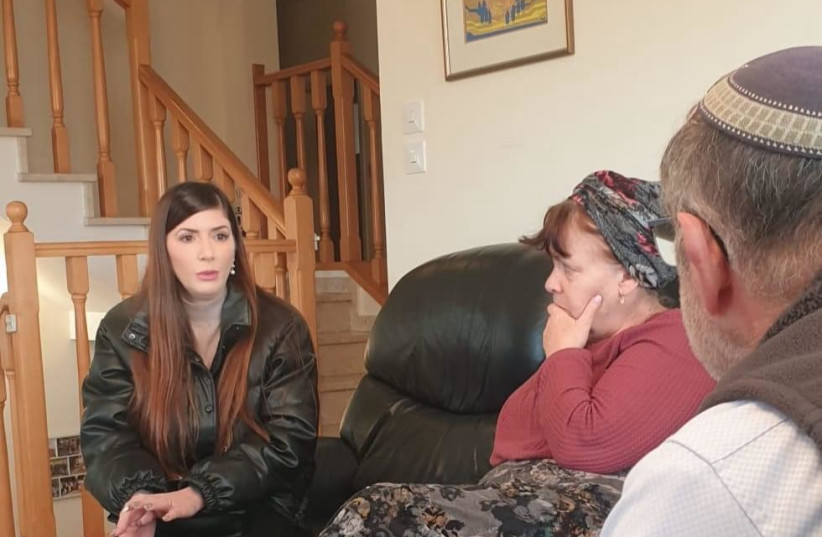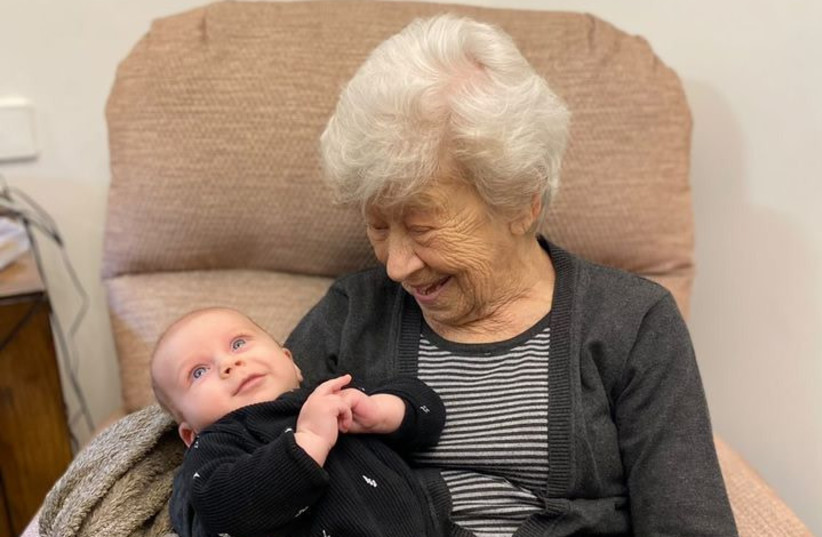Kaddish for Every Kadosh
The following is a letter I received from Eitan Meisels:
Dear Sivan,
My name is Eitan, and I’m the father of Nitai Meisels, from Rehovot, who fell while fighting in Gaza. You recently shared the story of Ortal Blich, who requested that Kaddish be recited for her husband, Vadim, who fell on Simchat Torah in Kibbutz Be’eri.
A new project called Kaddish for every Kadosh (holy soul), initiated by Dror David Amos, shared Ortal’s request. The idea is to match a volunteer who will recite the Kaddish prayer for one of the people who lost their lives in this war.
Seeing Ortal’s request, I read the story of Vadim’s life, and felt drawn to his character and to his heroism. For the past two months, I’ve been saying Kaddish for him three times a day, at the morning, afternoon, and evening prayers.

And then our Nitai fell in battle. During the week of shiva, Ortal came to our home in Rehovot to comfort us, and it was a most inspiring and heartfelt meeting.
I’m writing this not only to tell our story, but to publicize the project. There are still hundreds of volunteers needed for the holy task of reciting Kaddish for victims of the war, those who were murdered, who fell in battle, or died from their wounds.
Jews in the Diaspora can also help. Volunteering to say Kaddish for the war’s victims is an expression of true lovingkindness, both for the living and the dead, and a bond between the religious and the non-observant can be created in this way.
May everyone hear good news,
Eitan Meisels
May all the words of the Kaddish come quickly to pass, down to the last line: “May He Who makes peace in the heavens make peace for us and for all of Israel, and say, Amen.”
For more information on Kaddish for every Kadosh: https://holy.hhe.org.il/

Five Generations
Neta Nitzan is married to the great-grandson of Greta Monk, a woman of remarkable history. The photograph they cherish captures a touching moment between Greta and her great-great-grandson, Ivri Menahem, marking an astonishing 101-year age gap!
Greta, a native of Germany, fled with her family to England when Hitler rose to power. She braved the adversities of World War II in England, later marrying and relocating to Canada. Following in the footsteps of her children, Greta eventually made aliyah to Israel, where she has lived since. Her husband passed away a year and a half ago.
Despite her age, Greta remains mentally sharp. She has a positive outlook on life and often shares laughs with her family.
One of her many descendants was Nahal Brigade commander Yoni Steinberg, who went to war on Simchat Torah and tragically fell in battle. Ten days after his death, Ivri Menachem was born. Neta and her husband named the baby Ivri, which means Hebrew/Jew, and Menachem which means consolation, to symbolize the continuity and consolation he brought to this family of five living generations, uniting them in a time of sorrow.
Shabbat Songs – Legacy of a Fallen Soldier
Lieutenant Yaron Chitiz, a deputy company commander in the Givati Brigade who was killed in Gaza, can teach us something special about singing on Shabbat.
Yaron came home only once during the war, for Shabbat. His entire family, immigrants from South Africa, were together for that Shabbat in Ra’anana. Suddenly in the middle of the meal, Yaron pounded on the table and said: “What is this? Why aren’t we singing? It can’t be that in Gaza they’re singing more Shabbat songs than we are singing here!”
When Yaron and his soldiers weren’t on duty, they tried to make their Shabbat meals in Gaza meaningful. They didn’t have much in the way of special food for Shabbat, but they did have plenty of Torah thoughts and songs. Rabbi Doron Chitiz, Yaron’s brother, related with a smile that after that, everyone started to sing just about every Shabbat song they knew, with joy and excitement.
It was Yaron’s last Shabbat in this world.
At the shiva, Rabbi Doron asked me to pass on this message: “Yaron left a living will in which joy, Shabbat, and togetherness are bequeathed to all of us. So, this Shabbat, try to sing the songs you really love, and then sing just one more song.”
When an Actor Goes to War
Recognized as an enormously creative singer and actor, Idan Amedi — who is a soldier, too — is now referred to as Idan ben Tova, the name used in prayer. Idan was wounded in Gaza and we are praying for his complete and speedy recovery. I checked my WhatsApp for the last message he sent me and was amazed by what I found: a link to his song “Keep Marching,” which is about Rabbi Yisrael Meir Lau, along with the inspiration for the song, as follows:
“In 1942 at the age of five, Rabbi Yisrael Meir Lau, a small and frightened little boy, stood with his family in the city of Piotrkow, Poland, awaiting transport to the concentration camps. There, he saw a Gestapo officer strike his father with a baton since he refused to shave his beard and his sidelocks.
“In the next few years, the rabbi lost almost all his family to the murder apparatus of the evil Nazi regime.
“The rabbi was the youngest of those liberated from the Buchenwald concentration camp.
“I read the rabbi’s book just before I was drafted into the IDF. It changed my life and profoundly influenced every choice I’ve made since then.
“As a young officer I read excerpts from the book to my soldiers. The following passage is from a speech the rabbi delivered upon receiving the Israel Prize in 2005:
“‘When my brother, who is sitting here today, was separated from me in Buchenwald, he told me: “You are now a big boy, almost 8. I must tell you the truth. We do not have a father, we do not have a mother, and I have to go away. You will be left alone. I do not believe that this hell will end. But if you somehow remain alive, remember that there is a place in the world called the Land of Israel. Repeat after me: the Land of Israel. Go there. It is our home. There, they do not kill Jews. It is our home. In our home, all Jews are responsible for one another.”’”
The nation of Israel lives.
An Unusual Wedding ‘Menu’
An inspiring opportunity awaited us at the wedding of Noam-Yitzhak and Hallel Shveikeh. On a table at the entrance to the event hall, there were slips of paper with names of the wounded who need a complete and speedy recovery and of the hostages who need to return home as soon as possible.
Since a wedding is considered a special time for prayer, many guests took the opportunity to pray for one of the names during the holy moments of the wedding ceremony.
